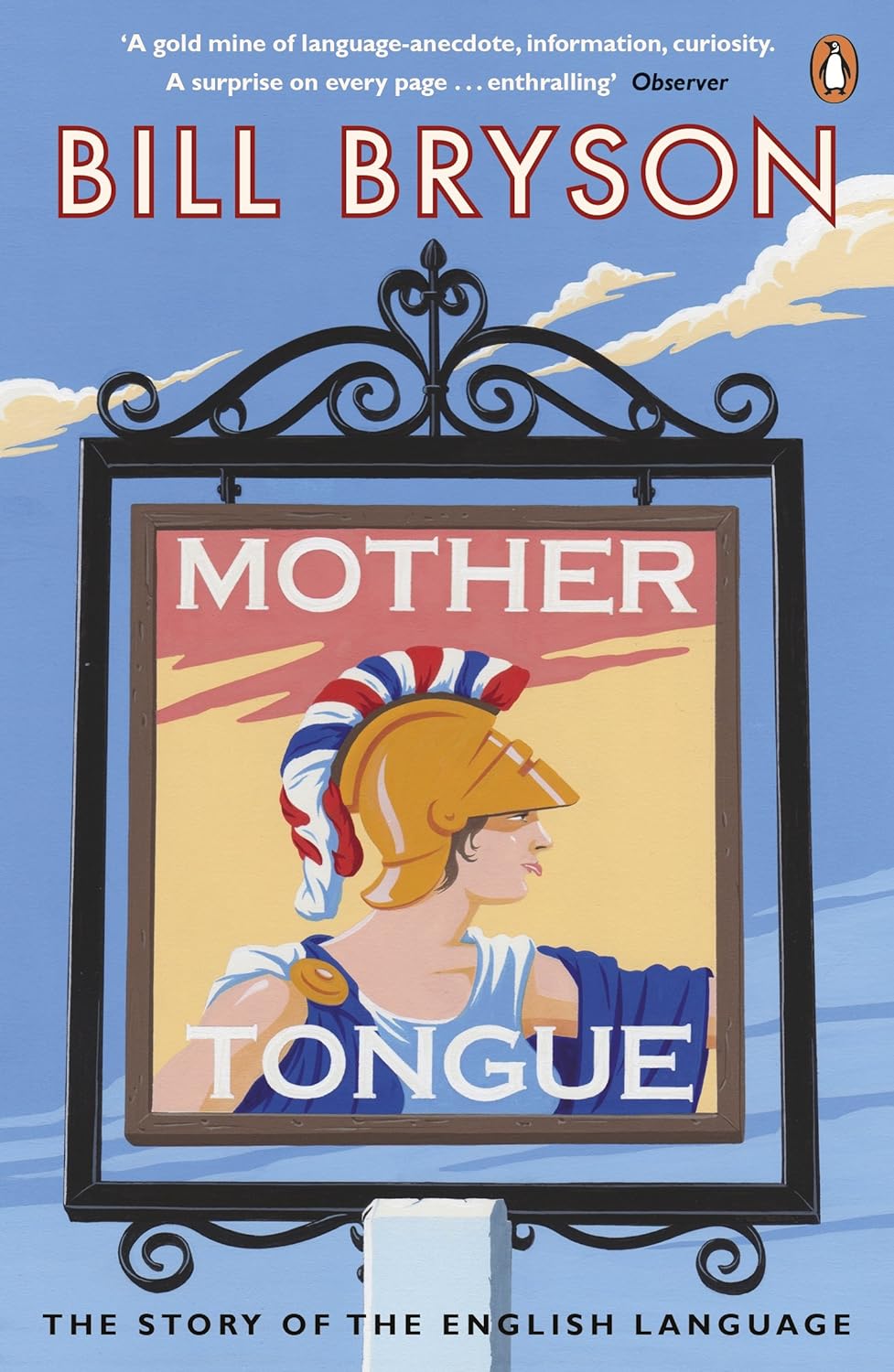
Mother Tongue: The Story of the English Language
FREE Shipping
Mother Tongue: The Story of the English Language
- Brand: Unbranded

Description
Once he’d noticed these similarities, Jones began comparing other languages to Sanskrit, and he found more and more evidence for a budding theory: that a wide variety of classical languages – Persian, Latin, Celtic, Sanskrit, Greek – had their roots in a parent language. But such lists are never set in stone. What we consider vulgar or profane tends to shift over time.
Mother Tongue - Penguin Books UK
Then again, he seems to think that Pennsylvania Dutch is a form of pidgin English, so perhaps that’s unsurprising! Our servers are getting hit pretty hard right now. To continue shopping, enter the characters as they are shown The one thing that bothered me the most about this book was a huge error it had on swearwords, in reference to my mother tongue Finnish: He surveys the history of language, the world's language families and where English is situated in the Indo-European stream, and all the other offshoots, some which are no longer living languages. He recounts the triumph of Anglo-Saxon language over Celtic (even though many of England's place names preserve their Celtic roots), the impact of the Norman invasion (of 10,000 words, approximately 3/4ths are still in use including much of the language of nobility (duke, baron prince) and much language of jurisprudence (justice, jury, prison among others). He explores the different ways words are created, sometimes by doing nothing! His discussion of pronunciation and particularly the shifts in vowel sounds was fascinating, For example house was once pronounced hoose. You weren't born in a barn but barn in a born. From the 8th to the 10th centuries CE, the British Isles were invaded and settled by the Vikings of Scandinavia. The Viking immigrants and their Norse language further enriched the Old English vocabulary, adding important words like husband, sky, and leg. Old English also absorbed syntax and grammatical structure from Old Norse, a testament to the language’s fluidity, even at this early stage in its development.Shortform note: At its peak in the early 20th century, the British Empire occupied nearly one-quarter of the world’s total land area and counted nearly proportion of the world’s people as its subjects.) I replied that in that case, Malayalam is my mother, and both Hindi and English are nannies. And I just happened to prefer my English nanny over my native one. She had no answer to that! At this point Bryson notes how many languages have similar words, like bruder in German, biradar in Farsi, bhrata in Sanskrit, bhrathair in Gaelic, all meaning brother in English. Why are these words so similar? An eighteenth-century English judge wondered the same thing – and his attempt to answer that question essentially launched the field of historical linguistics.
The Mother Tongue - English And How It Got That Way: Bryson
In this chapter, we’re going to take our survey of the language beyond the British Isles. We’ll explore how American English came into existence, diverged from British English, and developed its own unique characteristics. Then, we’ll examine how English has evolved as a global language. The Legacy of the British EmpireCunt is perhaps the most obscene word in the English language, but it was entirely commonplace and inoffensive a few centuries ago, existing even in the works of Chaucer and Shakespeare. Throughout the history of the English language, however, there have been shifting definitions of which words were and weren’t considered offensive. What was perfectly acceptable in one era could be considered highly offensive in another. When the first inhabitants of the continent arrived in Botany Bay in 1788 they found a world teeming with flora, fauna, and geographical features such as they had never seen. “It is probably not too much to say,” wrote Otto Jespersen, “that there never was an instance in history when so many new names were needed.” Among the new words the Australians devised, many of them borrowed from the aborigines, were…” People don't talk like this, theytalklikethis. Syllables, words, sentences run together like a watercolor left in the rain. To understand what anyone is saying to us we must separate these noises into words and the words into sentences so that we might in our turn issue a stream of mixed sounds in response. If what we say is suitably apt and amusing, the listener will show his delight by emitting a series of uncontrolled high-pitched noises, accompanied by sharp intakes of breath of the sort normally associated with a seizure or heart failure. And by these means we converse. Talking, when you think about it, is a very strange business indeed.” One of the clearest manifestations of local dialect is slurring—the addition, subtraction, or substitution of letters in spoken English that aren’t reflected in the spelling. The general trend is one of subtraction, losing letters and syllables over time and letting pronunciations become looser and more casual. The words that tend to be slurred the most are local and familiar place-names—like how “Baltimore” becomes “Balamer” in the mouths of locals.
- Fruugo ID: 258392218-563234582
- EAN: 764486781913
-
Sold by: Fruugo
